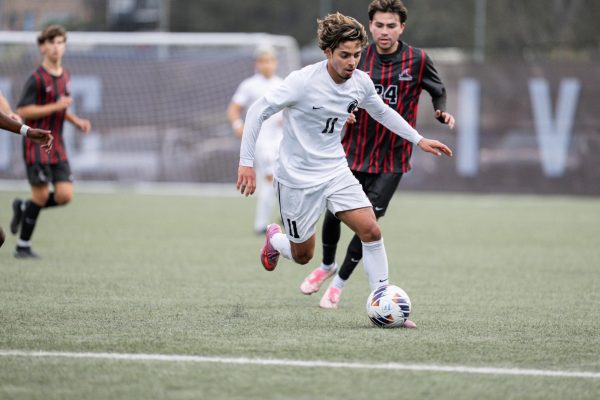Where do we go from here?
SPU students share thoughts on recent events, and the future of the country
January 15, 2021
The passing of 2020 was a welcome and long-awaited affair. The new year represented a chance to move on from the dysfunction of the past twelve months.
Junior sociology and human development major Emily Kasue was looking forward to a better 2021.
“I just genuinely feel like we all needed just a good fresh start,” Kasue said. “I think everyone, ever since the beginning of 2020, was in such a terrible mindset. 2021 was something…everyone was looking forward to.”
However, on January 6th, just days into the new year, a mob of President Trump supporters stormed the United States Capitol in Washington D.C. in what authorities assume was an attempt to block the counting of electoral votes confirming President-elect Joe Biden’s win. As of Jan. 15, five people are dead as a result of the attack.
Outpourings of shock and grief flooded social media. But many people, while devastated, weren’t surprised by this attack on the Capitol.
“I remember in one of my classes, my professor was like ‘this was so shocking’ and I raised my hand and I was like ‘honestly, I’m so sick and tired of people saying that they’re shocked by these events,’” Kasue said. “Just like when people said they were shocked by the tragedy of George Floyd. George Floyd wasn’t the only person who was suffocated by an officer of the law.”
While an attack of this magnitude hasn’t happened in the Capitol since 1814 when British forces invaded Washington D.C. as part of the War of 1812, many felt like the anger of right wing nationalists had been building in the months following Trump’s election loss. For some, like Kasue, it was more a question of when tensions would bubble over, not if.
Many people have also expressed frustration with regard to the treatment of the attackers on Wednesday, as videos showing Capitol Police taking selfies with protestors, walking them up the steps, and letting them into the gates of the Capitol went viral.
“As a person of color, to see the way that the people who stormed into the capitol were treated in contrast to the Black Lives Matter supporters having federal troops attacking them for no reason, it just blew my mind,” Kasue said.
Senior music therapy major Leah Duff, who is from Washington, D.C., was personally impacted by the attack on the Capitol.
“I was just so worried and anxious the entire day because I have family and friends there,” Duff said. “I had a friend who went out into D.C. that day and ended up in a situation where she could’ve really gotten hurt.”
According to Duff, many people have an abstract conception of D.C. as a place where the government is based, rather than a city where people live and work.
“It’s not like this was only affecting the capitol building that they broke into, it’s an entire community, an entire city and its surrounding cities that were affected by this,” Duff said.
Since the events of Jan. 6, many people, including celebrities, have posted on social media about their shock and heartbreak, arguing that the actions of the perpetrators don’t represent the values of the nation as a whole. On the other hand, however, many reject this idea.
“I think that oftentimes people love to blame the Trump administration for the way that this country is … and the white supremacy that has made its home in the heart of America,” Duff said, insisting, “this is what America was based on.”
NPR’s Sam Sanders wrote a piece titled, “The Lies We Tell Ourselves About Race”, which argues a similar point.
“We are a country built on fabrication, nostalgia and euphemism. And every time America shows the worst of itself, all the contradictions collapse into the lie I’ve heard nonstop for the last several years: ‘This isn’t who we are,’” Sanders said. “It all feels new. But it is not.”
The insurrection of the Capitol happened while we are still facing a global pandemic, the death toll of which will soon top 400k in the United States alone. The vast majority of people involved in the attack on the Capitol were not wearing masks, and few to none appeared to be social distancing.
“My first thought was, they are exposing all of the people who live in D.C. to this virus,” Duff said. “While I’m sure this would’ve happened even if there wasn’t a pandemic, [the people who carried out this attack were] clearly people who have not cared before, and will continue not to care [about COVID guidelines].”
Many anticipate that President-elect Biden will be able to get a handle on the pandemic, something that they feel Trump has failed to do. The inauguration of Biden, just days away, has Kasue feeling hopeful.
“I just remember when Biden was elected, I literally felt like weight had just lifted off of my shoulders,” Kasue said. “I know that all these Trump supporters aren’t going to immediately go away, but I feel a lot more at peace, knowing we’re in better hands.”
Also of note, the Georgia state runoffs were called this past week, electing Democrats Raphael Warnock and Jon Ossoff to the United States senate, tipping the scales of Legislative power ever more in the Democratic Party’s favor.
“Now that we have a Democratic majority House and Senate, and a Democratic President, I think it’ll be interesting to see what kind of excuses they come up with for not passing certain legislation that we’ve been asking them to pass for years,” Duff said.
Duff, for one, wonders whether or not people will abandon marginalized groups under a Biden Presidency, once the perceived threat of the Trump administration is no longer imminent.
“I’m excited to see [whether] those same allies that are talking the talk, if they’ll continue to walk the walk with us, as we continue to fight the good fight that we’ve been doing for far too long,” Duff said.



























































































